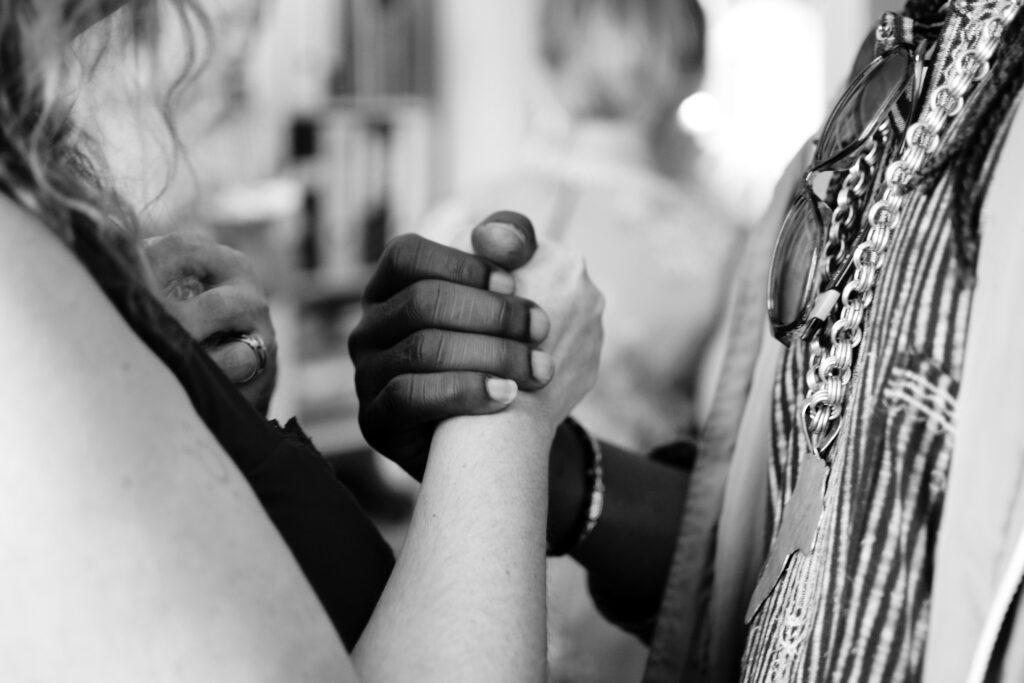
Photo by Aarón Blanco Tejedor on Unsplash
I am a half-full guy. I see the glass, I know it is half-full, and I would like a drink. Better yet, I might think to offer it to someone who needs a drink more than I do. I see the world as half-full. Yes, I know there are problems, but at least we are half-full.
Of course, there is a time to look at the other side. Today, I want to write about the half that is empty.
On a recent trip to Charlotte, North Carolina, our Uber driver told us about his other job. He has some land in Ghana, West Africa where he grows, corn, casava, and other food. He has managers that tend the land most of the year, but he goes back to Ghana for a few weeks at harvest time. He sells most of the produce but gives 10% of his farm harvest to local people who are hungry and at risk of greater poverty. He also said that he does this directly to the poor because he does not trust the politicians or “men of God” to do this properly. He told us how both the politicians and the churches are corrupt and would tend to keep the food for themselves or sell it to line their own pockets. He told us how the “men of God” preach health and wealth but rob from the poor to support their lifestyle.
Unfortunately, the same Uber driver did not have much good to say about the local Christians in his own adopted city. As a driver, he had seen way too much of churchgoers who spend the morning in church and the afternoon being drunkards in the bars and Uber vehicles.
On the same trip to Charlotte, it was pointed out that this city in North Carolina is one of the most racially segregated cities in the US because of historic practises of exclusionary zoning, realtor regulations, and inequity of mortgage availability. Charlotte is a prime example of the type of racism explained in a series of videos by Phil Visser (see https://www.youtube.com/watch?v=AGUwcs9qJXY ). The US Federal Housing Administration recommended that highways be built to segregate communities and stated that, “incompatible racial groups should not be permitted to live in the same communities.” Today, the legacy of such practises can be seen in major US and perhaps less explicitly in Canadian cities.
We went to the Levine Museum of the New South, where we learned that many people of colour are climate refugees and targets of environmental racism. They have been squeezed into the dirty, polluted, and environmentally dangerous zones in our countries. Then when a hurricane, a landslide, a flood, or an environmental disaster happens, they have nowhere to turn.
Now, some will say, “You are pointing to a lot of negative stuff, but the glass is still half-full.” And I would tend to agree with you. The problem is that for me, the glass is more than half-full. Life may have given me lemons and sugar that I could easily turn into lemonade. But many in our world have been given chokecherries, no sugar, and dirty water.
What is the solution for the half-empty and those who have been given bad water? Certainly, we need to listen. I need to spend time in places like the Levine Museum and the Canadian Museum for Human Rights in Winnipeg. I need to meditate upon the privilege I have. I need to be grateful for every bit of good I have received and then I need to think carefully about how I can be an agent of change for those who did not receive the same privilege and those who have been purposely oppressed.
The tie back to the Christians who were in church in the morning and drunken and difficult in the afternoon is painfully obvious. The health and wealth Christians who stole from the hungry is catastrophic to the witness of Christians in this world. The religious can be part of the solution to world problems or can be complicit with the evil that oppresses and binds the poor.
Jesus had three ways he related to people:
- He called out the religious hypocrites,
- He welcomed and ate with the poor, oppressed, rejected, and all who would sit with him,
- He called people to follow him.
It seems that our churches need to do the same: call out religious hypocrisy, welcome all, and call people to orient themselves toward Jesus and follow him. I do not want to suggest easy answers, but we must become loving, grace-filled followers of the one who practised perfect acceptance and pointed to a better way.
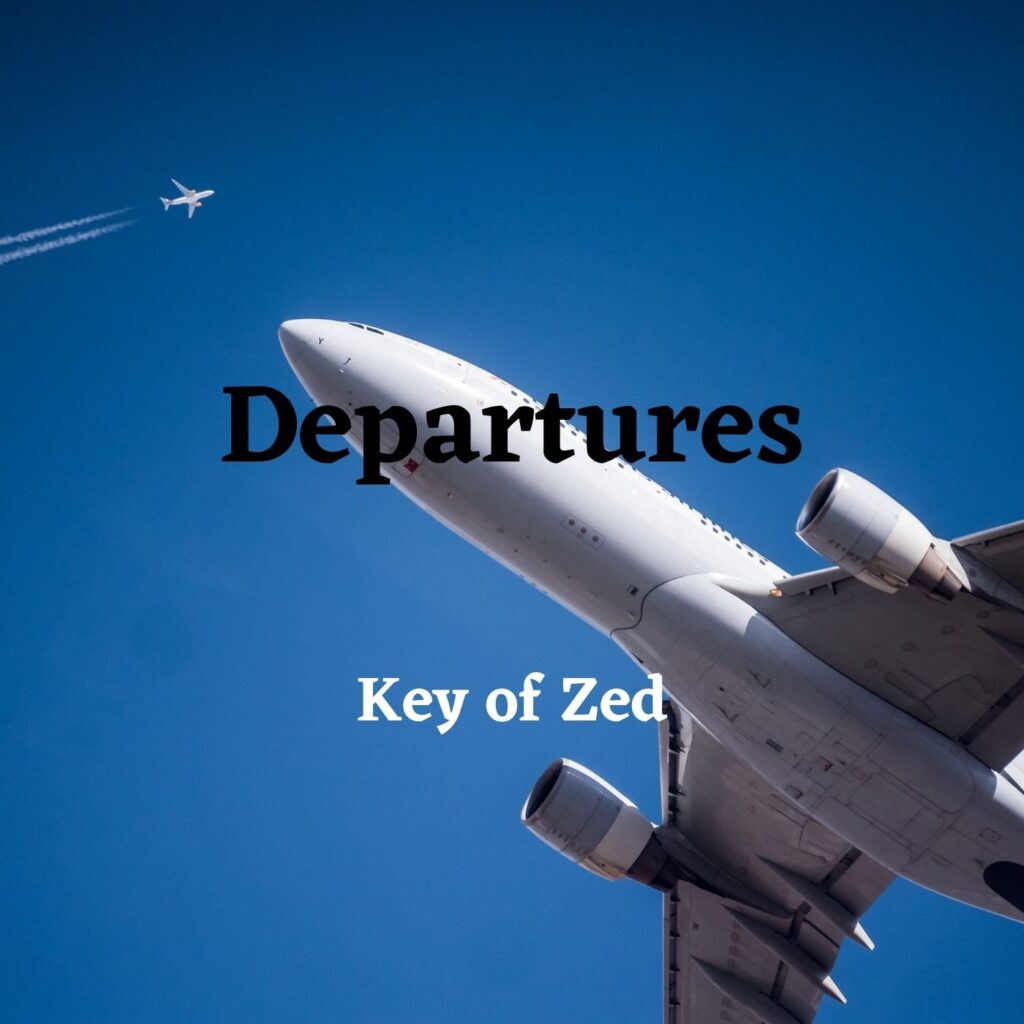
Departures is the second album of original songs recorded by Key of Zed and it features eleven songs from the duo of Mike Charko and Keith Shields. On this record are songs of unrequited love, songs of poverty and lament, and songs that touch upon such tragedies as hurricanes and Alzheimer’s Disease. The album also contains a murder ballad and a song about a guy who is just might be lost in his own mind. Be sure to see the concept video for the song Silver Bullet and check out this latest album wherever music is streamed and sold. This album is bound to be a “No Hit Wonder.”
https://www.youtube.com/results?search_query=departures+key+of+zed
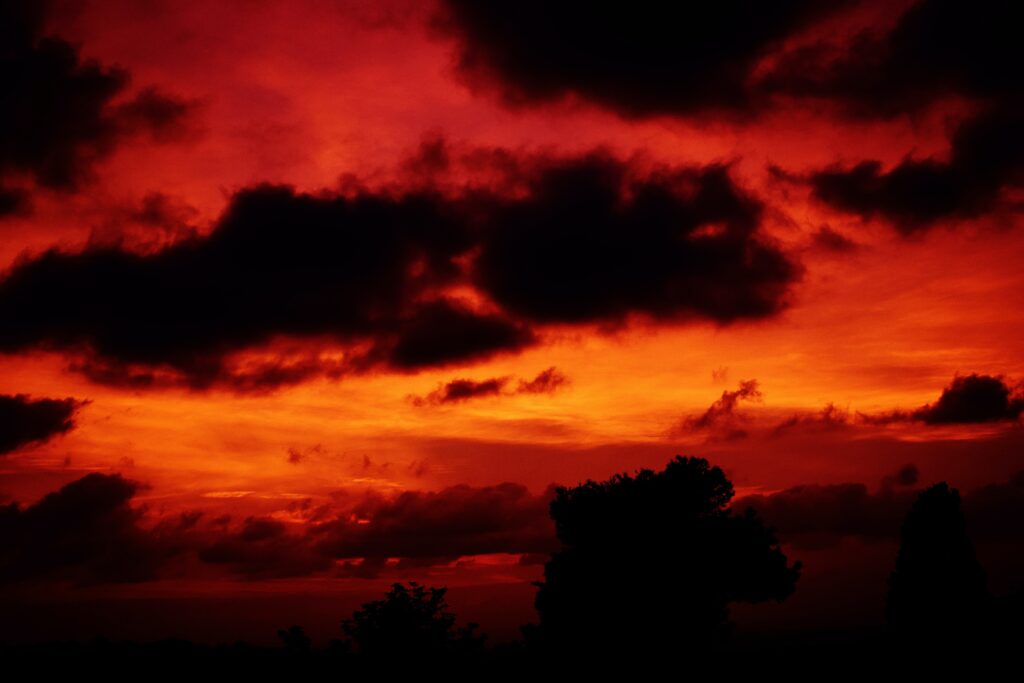
Key of Zed released a new single entitled “Silver Bullet.” It is about the state of our world and how we need one silver bullet to solve all of the world’s problems. Is there a silver bullet? What if we already have it? Do we want the Silver Bullet?
You can hear the song here while you read the lyrics. Watch for this song to be released on the upcoming album, “Departures.”
Silver Bullet
(Words and Music by Mike Charko and Keith Shields – SOCAN 2021)
Look at this world, who could deny
We need deliverance from these lies
For surely, no one wants to die
And I’m not sure we even know why
This world is tilted off of true
We’ve given the devil all his due
Yet still the demons cry the blues
Every year the debt accrues
Trigger cocked and barrel aimed
Acting like it’s just a game
Finger now is ready to pull it
What to do with one silver bullet?
Who made me judge and jury?
Why the eyes that look with fury?
I’ve been to hell and back again
And never seen the likes of them
They say they’re righteous, they know not why
It’s just their turn we hear them sigh
And all around them dust dost fly
While those without tears can only cry
Trigger cocked and barrel aimed
Acting like it’s just a game
Finger now is ready to pull it
Where to shoot this silver bullet?
Bridge:
What if we already have it,
Do we want all this havoc?
More than the Silver Bullet?
Have we got the Silver Bullet?
If we could find our Cyrus
The one who says he’s come to guide us
Messiah clear or just a pilot
Sure he’s not our Pontius Pilate
There has to be a better spirit
To find a way not to kill it
Drink the blood but never spill it
Lord give us one silver bullet
Trigger cocked and barrel aimed
Acting like it’s all a game
Finger now is ready to pull it
What to do? – Silver Bullet?
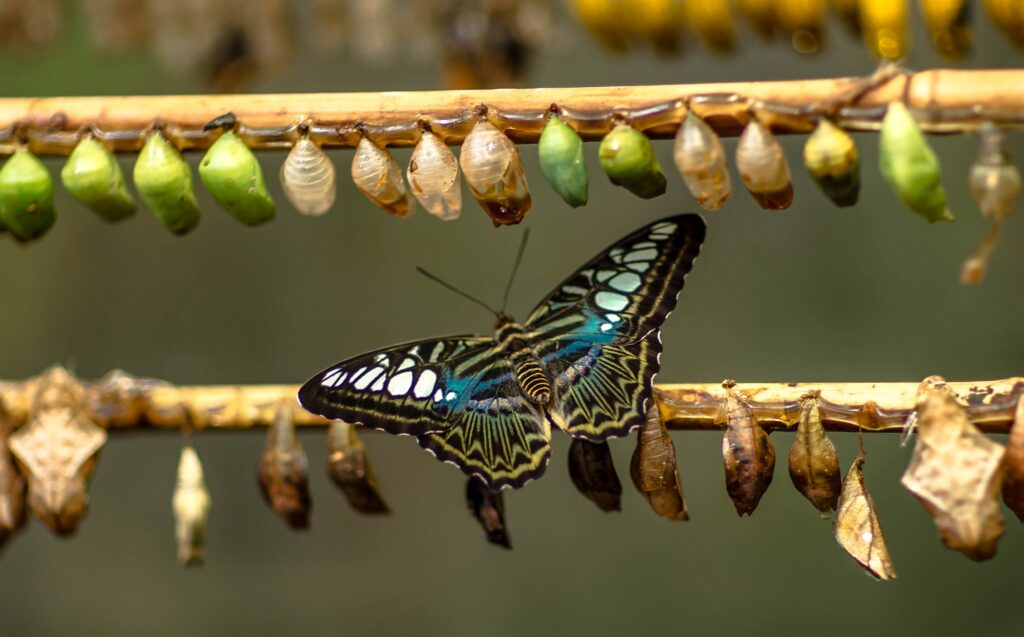
It has become an everyday or at least every month occurrence. We hardly raise an eyebrow anymore: another pastor, politician, leader, entertainer is cancelled because they “stepped in the purple do-do.” I say purple because it is not black, not white, and not even grey – but it certainly is royal. Bruxy Cavey was recently arrested because his indiscretions are considered to have crossed the border into the region of abuse of power and sexual assault. Of course, Bruxy Cavey is only one of many who have fallen from authority and the grace we give them.
Grace is one of the issues. We give pastors and other servant leaders a lot of grace because we believe them to be living a life of sacrifice. Many times we have heard their failures excused or the large salary explained by saying, “He/She lives a life of sacrifice, doing the Lord’s work. If they were out in the corporate world, doing the work they do, they would have a lot more perks and a much bigger salary.” The fact is, if someone truly is living a sacrificial life, giving up their own comforts to serve others, there can be a higher degree of trust. We trust pastors to be beside others when a loved one is dying, we trust pastors to give biblical advice and sound wisdom as they counsel a soon to be married couple, we trust pastors to guide our young people – until they are not worthy of our trust.
But perhaps we should notice that they are not worthy of our trust long before it gets to the point of an immoral or illegal relationship. Pastors used to go into the ministry to serve the poor, shepherd the followers of Jesus, proclaim the truth, teach God’s ways, and go to the far corners of the earth with the good news of Jesus. But, as people like Mike Cosper have recently shown[1], some become pastors for the social capital that comes with being a preacher and the voice of God. They have never experienced the sacrifices (nor would they want to experience the sacrifices) of an earlier generation when many pastors lived in poverty and social rejection.
The majority-culture phenomenon of “be yourself” has very powerfully invaded the world of the church. Many church attenders and many pastors have learned this self-expression mantra and have planted it in the core of their being at a greater depth than Jesus’ words of “love your neighbour as yourself.” Deeper than the inspired words of Romans 12 which say, “be transformed by the renewing of your mind.”
It is an easy step from the recognition one gets from standing in front of 60 or 6000 people and bringing the message of the day, to believing that we can be the next internet celebrity or conference circuit plenary-session-member-of-the-bullpen. It is also an easy moon walk from that position to the geography of spiritual abuse. Somewhere along this path, we missed the signs that trust had been broken. Perhaps it was back at that point where we noticed that our pastor was more interested in social capital than he or she was about serving others. Perhaps it was back when his social media feeds exalted his or her own achievements much more than they lifted the service of others.
The role of a pastor used to be a position where one would expect to become a better person and become transformed into the image of the one whom we follow, that is, becoming more like Jesus. Today, people celebrate the pastor who admits that they sin (which they do) and that they sin just as much as the rest of us (which they should not). Let me explain. The role of pastor used to be one in which we could expect that he or she was human like all the rest but that he or she had a character that was being transformed day-to-day into the image of God. Since we gave them more time, space, and resources for it, it was reasonable to expect that they might progress at the spiritual journey just a little bit faster than the rest of us.
But the “be yourself” and “I am just like you” mantras have ruined our trust in our pastors. We do not want the population of pastors to be just like us. We do not want pastors to get divorced at the same rate as the population of church members – especially since the rate in the church and in the general population is also so close to the same.
So, what is the answer? Certainly, part of the answer is to pay less attention to the celebrity pastor and give more attention to the humble follower of Jesus who is serving well, teaching well, and growing in character. We may find these pastors in the ranks of the recently immigrated pastors who come to us from difficult parts of the world. We may also want to look for them in the dearly departed zone of the Body of Christ. Billy Graham has been dead for more than four years now. Perhaps we could safely look at the good and bad aspects of his servant leadership and learn from him. Eugene Peterson’s authorised biography, A Burning in My Bones[2], has much to teach us about sacrificial living, transparency, repentance, and humble service to a few.
Gordon MacDonald is still among the living but recognises that he is nearing the end of his life here on earth. His recent interview with Carey Nieuwhof [3] reveals a man who is remarkably comfortable with both his humble service and his failures. There is a measure of character that is evident and even more noteworthy because he speaks softly and carries much weight of wisdom. He is quick to commend others before noting things that could be improved.
Graham, Peterson, MacDonald, these are people we might consider trusting and these are people we might consider imitating. Paul the Apostle, inspired by God, spoke to Timothy, a man of character and youth, and said, “Be imitators of me, just as I also am of Christ” 1 Corinthians 11:1. Let us be watchful, alert, and ready to imitate those found to be servant leaders, those found to be trustworthy, and those found to be worthy of our imitation.
[1] Mike Cosper, “Everything is Still Falling Apart,” Bonus Episode of “The Rise and Fall of Mars Hill,” Christianity Today podcast, christianitytoday.com, June 17, 2022.
[2] Collier, Winn. A Burning in My Bones: The Authorized Biography of Eugene H. Peterson, Translator of The Message. The Crown Publishing Group, 2021.
[3] “Carey Nieuwhof Leadership Podcast” CNLP 297: Gordon MacDonald Shares 8 Decades of Wisdom and Life Lessons, October 17, 2021, https://www.youtube.com/watch?v=HzGA477zG8s .
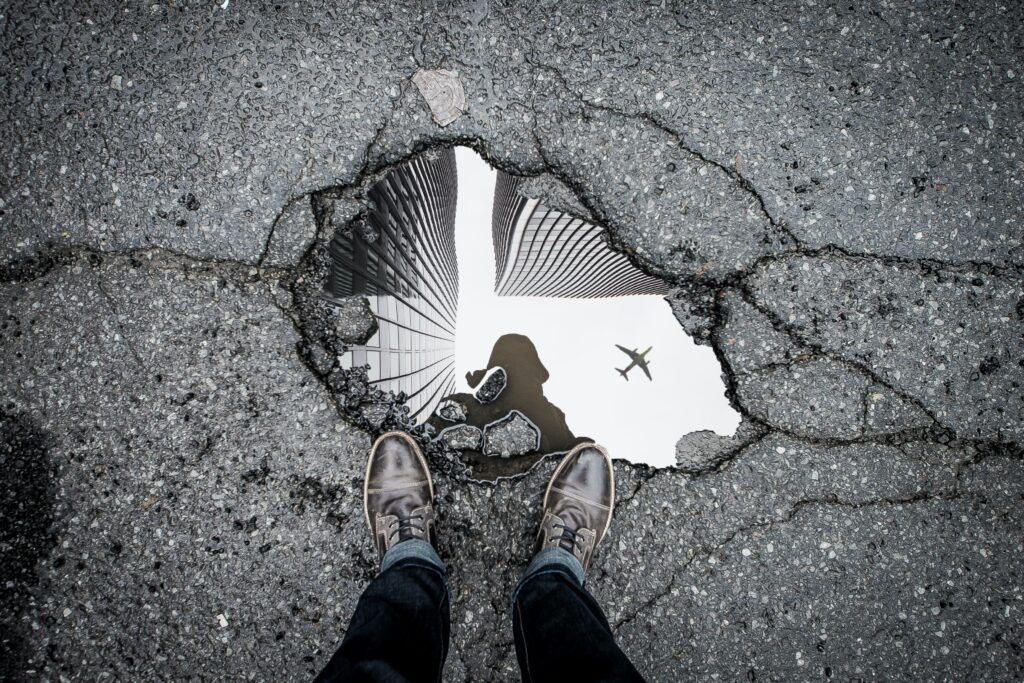
Photo by Marc-Olivier Jodoin on Unsplash
How can I know what one “like” on social media means? If I like your post, does it mean that I like the event, or the relationship, or the moment, or the image, or that I like you? Does it mean that I like the pain you have been through to get to this event, relationship, moment, image, or person? Does it mean that I understand what you have been through to get to this moment? Does it mean that I understand the joy of this moment? I think I know my friend, but do I truly know my friend? There is much about you I do not know. Even when I like you.
This knowing and not knowing carries over into other aspects of my life. I live on a lot of borrowed knowledge: the knowledge that others have that becomes, for a time, my pseudo-knowledge. I do not truly know but I borrow this knowledge to bridge me to other knowledge.
I know that hydrogen is a simple atom with one proton and one electron. Two atoms combine to form the simple molecule H2, the most abundant molecule in the universe. But that is borrowed knowledge. I have not experienced this knowledge and I can only prove it by other borrowed knowledge.
There is much that I do not know. I am without knowledge. I am agnostic.
Being agnostic is the state of not knowing things. I am without knowledge in a great many areas. I am dependent upon the knowledge of others as I seek to make knowledge my own. The circles that bound the things I know grow at a geological pace, while those that bound the unknown and unknowable grow with the pace of dandelions in my lawn. I try to keep the circles of known and unknown from intersecting, to avoid the danger that one might swallow the other.
There are some things I know. There are some things I think I know; there are some things I think I know that are not known at all; and there are things I simply cannot know. (Yes, that is an intentionally convoluted sentence.) At many turns, I am without knowledge. I am agnostic. And if I try to claim otherwise, I am certainly the fool. 1 Corinthians 8:2 (NLT) says, “Anyone who claims to know all the answers doesn’t really know very much.” Revelation 3:17 (NLT) says, “You say, ‘I am rich. I have everything I want. I don’t need a thing!’ And you don’t realize that you are wretched and miserable and poor and blind and naked.” Too often we put knowledge in the category in which “I have everything I want. I don’t need a thing.” I might even shield myself from being exposed to more knowledge in a certain area for fear of it disrupting the solid pillars of knowing upon which other knowledge rests. Lord protect us from ourselves. Don’t let me get me.
“O wretched man that I am! who shall deliver me from the body of this death?” Romans 7:24 (KJV) Who can deliver me from this agnosticism?
“Now we see things imperfectly, like puzzling reflections in a mirror, but then we will see everything with perfect clarity. All that I know now is partial and incomplete, but then I will know everything completely, just as God now knows me completely. Three things will last forever—faith, hope, and love—and the greatest of these is love.” 1 Corinthians 13:12, 13 (NLT) I now return to my original thought, I do not know what a “like” means. Furthermore, I struggle to know what love means. Lord, increase my faith, strengthen my hope, renew my love. May all three remain in me.
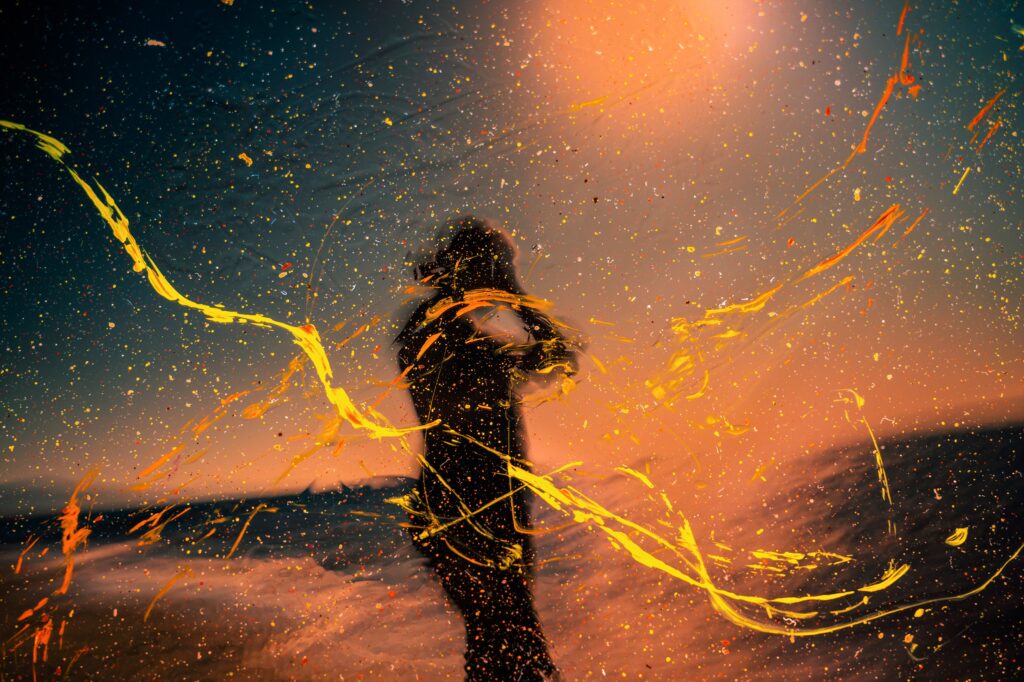
The moment it occurred to me is still a little foggy, it is likely connected to my appreciation for music and poetry. In Junior High School our English teacher introduced us to poetry and encouraged us to bring poems to class. One of my classmates brought in the lyrics to “Talking Old Soldiers” by Bernie Taupin and Elton John. I remember being struck by those words and the emotional landscape they created in my mind. I began to feel music and poetry and get in touch with how they affected my emotions. The entire Tumbleweed Connection album by Elton John became a favourite. Perhaps if I had the right words to describe it, I would have then called myself a “creative.”
But the actual act of creating would take some more time to grow within me. The first things I created were musical performances. I would interpret a song and sing it for an audience. I did not recognise the first few performances as creativity. What eight-year-old understands creativity when the choir director encourages them to sing “Somewhere Over the Rainbow”? Yet, it was a creative performance by a boy tenor. In later years I found myself working for many hours and days to give a dramatic performance of a song or a whole character’s worth of musical drama for a church musical. I began to understand why someone might create ice-sculptures. Ice-sculptures are a very pure form of creativity because after all the work that goes into them, the resulting piece of art has a very short lifespan. The same can be true for a vocal performance. After it is over, it is remembered for only a short time. The work that went into it may live on in the performer’s mind but not as much in the mind of the audience members.
Eventually, I began to write my own songs: a few worship choruses for church and then a “lost love” ballad. To this day, while collaborating with others, I have written or cowritten over twenty-five recorded songs. Far fewer than Rivers Cuomo from Weezer, who puts out more music than that in a year; yet twenty-five songs in twenty years still qualifies as creative.
It has slowly dawned upon me that I am a “creative.” I like math, biology, and physics and did well at those in school. I worked for thirteen years in molecular genetics. I can still use my scientific mind to solve basic functions like how long a rock will fall when dropped from a fifty-metre height. But since then, the creative side of my brain has been leading a quiet coup d’état. Writing poetry and music has led to further developments like writing hundreds of speeches, approximately one-thousand blogs, a novel, and a non-fiction book. Although I am very much a generalist who does not focus on one thing for long periods of time, it is fair to give myself that creative label. It frees me up to focus more on creative aspects of life and to let other things become slightly less important. Calling myself creative makes me comfortable in my own brain.
The slow-burn of a charcoal fire is greater than the rapid flash of a firework. Is there a flame growing in your life, dear reader? If you went back to school tomorrow, what studies would be your focus? Would it be physics, math, biology, athletics, poetry, history, languages, ceramics, paint, culinary arts…? How do we allow for the slow dawn of mental or physical gifts in our life? How do we create space and time for these? The joy of finding something that we love to do is certainly worth the effort. Do I dare to say, “I am creative”?
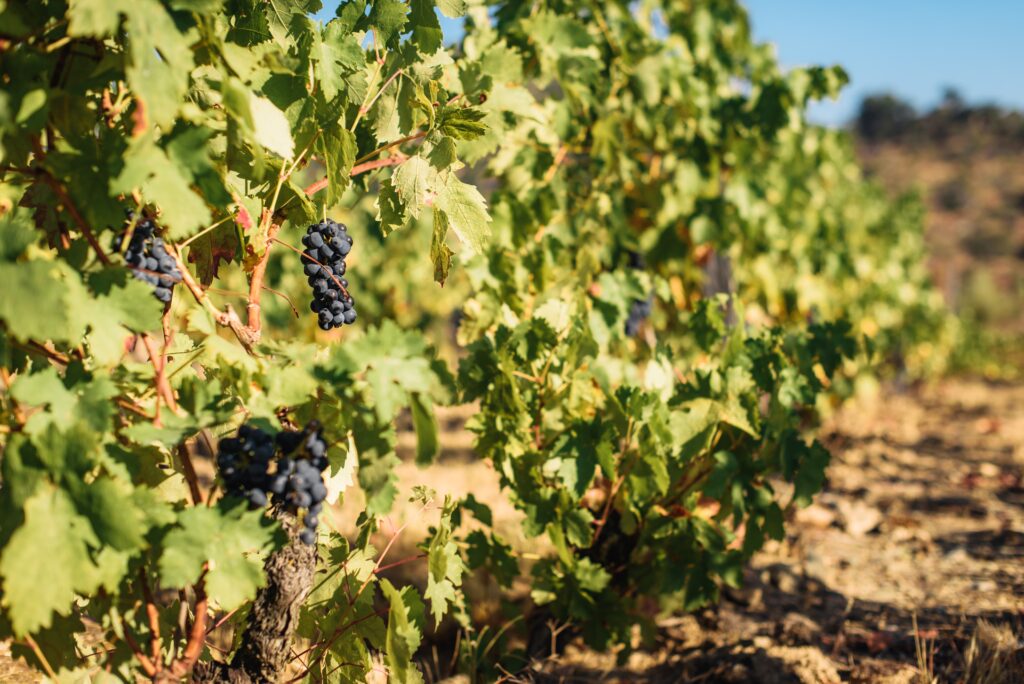
The Growing Season, Nelson Boschman, 2022
Nelson Boschman’s book The Growing Season could not have come at a better moment for me. I got to read an advanced copy before its official publication and it was sent to me on April 17th, the first day of a vacation in France and Italy. I was able to read the book in Paris and Bordeaux in France and in Florence, Italy. Now anyone who knows even a bit about wine, knows that both Bordeaux and Florence are significant wine producing regions. Our vacation took us to a winery in Saint-Émilion and two in the Tuscan hills near Florence.
Not being much of a wine connoisseur myself, the book helped me understand much about tasting, appreciating, and understanding the years of hard work that go into the making of a good bottle of wine. In fact, one of the strengths of the book is the significant detail regarding how wine is made. But the book is not just about wine and winemaking. The book is also about a spiritual journey. Nelson Boschman has a pastor’s heart and seeks to lead others in their spiritual journey. I have known Nelson for several years and have followed his career from afar. I have known him as an artistic soul who planted and led a church in one of the most difficult places in Canada. To survive as a pastor and church planter in Vancouver, one must truly love people and have great stamina to make it through the ups and downs of church life.
It is this connection between those who make great wine and those who curate their own soul first so that they can lead others in their spiritual journey, that makes the book so helpful. I appreciate the stated goal of the journey on which Nelson is taking us:
“I have been searching for a more this-worldly spirituality…. Something more inclined to explore what it means to live well, to flourish as humans here and now…. less pearly gates and a lot more consider the lilies.”
I read those words as I sat in Paris observing the connection between great art and great faith. It seemed to me that people who lived a few hundred years ago had a greater understanding of this connection between the earth and heaven. They did not separate their spiritual life from the day-to-day work of making a living and finding enough food for their family. They knew that they were dependent upon God and that they also must succeed by the sweat of their brow. I could appreciate that I too was looking for this connection of earth and heaven.
Chapter Three, “Little Foxes” contains a marvelous illustration of something that Jesus said about allowing the good crop and the bad weeds to grow together until the harvest. Boschman speaks of the incredible risk God takes with us and how we have trouble distinguishing between the crop and the weeds, the good and the bad in our lives. He suggests that we can trust God to sort things out at the right time and to use even the bad weeds for good in the growing of a crop.
Boschman speaks with honesty of losses in his own life and how we can acknowledge that even with small losses it is important to admit that they feel significant to us. I could certainly relate to his words about missing going for runs on Vancouver’s seawall, for I lament the same loss. Although we did not run together, there was a time when we both lived on the edge of the sea and went for runs on those magnificent pathways around Vancouver. Both of us have moved away and can no longer step out the door to run there; and both of us grieve the loss of our connection with the ocean. This may seem like a small loss when others are losing so much more, but Nelson points out that is okay to grieve our own small losses. “…everyone’s story matters. Everyone’s story deserves to be honoured. Including mine.” (Chapter Four, “Harvest”)
Perhaps the one thing that needs to be said about the book is that the reader needs to persevere in reading it. Initially I found myself not seeing the connection between wine making and the spiritual journey, or at least the connections seemed a little too tenuous for me. As one who does not have the same appreciation for tastings, pairings, and guarding my palate, I was almost bored with the wine talk. But as I got deeper and deeper into the book, I found that the connections began to build one upon another until I began to be drawn into the relatedness of it all. By Chapter Five I was good and hooked and could see the connections more clearly.
By the same token, Boschman’s description of how to taste wine and guard the palate were exceptionally helpful as I toured three wineries. I loved his quote about not brushing his teeth after breakfast because “The last thing I wanted was to sip a lovely Bordeaux-style blend that’s supposed to taste like blackberry, plum, and vanilla, and all I’m getting is fresh mint Sensodyne.” Perhaps I drove my wife a bit crazy as I guarded my palate and wouldn’t have a bite of her ice-cream after the second winery tour and before the third. I had a silent chuckle as I noticed that someone else on the tour was chewing minty fresh gum just before the tastings.
I highly recommend this book to anyone who wishes to learn more about wine and more about spiritual development. You don’t have to be a sommelier or a pastor to appreciate the earthiness of the book, the soul baring honesty of human joys, losses, mistakes, and triumphs. Life is always about growing, learning, and progressing in an appropriate growing season.
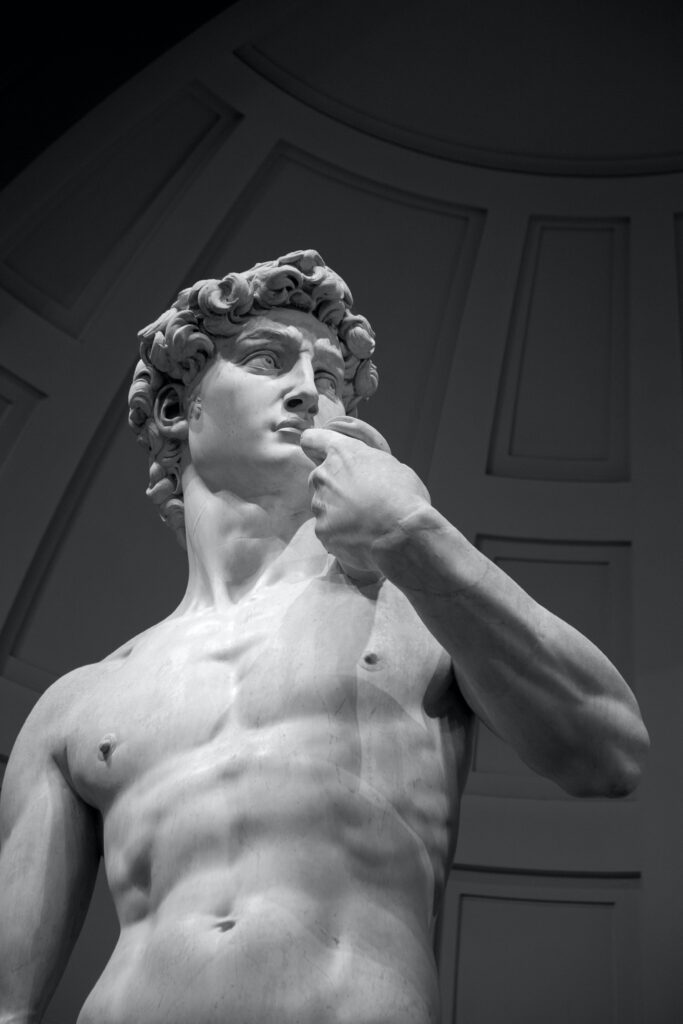
Today, I sit in Florence writing poetry and a blog. I am extremely blessed to be able to travel after two years of pandemic restrictions. What a privilege to be here and see all that has gone before. Sunday morning, I was in Venice in the Piazza San Marco. I had a quiet worship time at 7:00 in the morning before the rest of the tourists rose from their beds. I looked about and saw the amazing works of art and Saint Mark’s Basilica where the relics of Mark the Evangelist are said to be buried.
Much of the art of course has a Christian theme and was made as an act of worship to God. There are paintings, frescoes, bronze statues, marble sculptures, and so much more. It is beautiful and I felt a sense of awe and grandeur for those who have gone before and dedicated their whole lives to creating works of art and architecture which not only worshipped God but also pointed others to the great Creator of all. Stories from the Bible were laid before me in glass, marble, bronze, and paint as if I were an illiterate peasant from the 13th century. Yet, it occurred to me that much of this worship directed toward God was misguided, corrupt, or imperfect in some way. Those who had gone before tried to worship God with a whole heart and give of their best to him. But truly they often failed. Much of the time they failed because their motives were wrong. They made art and considered it a sacrifice to God as a form of appeasement so that he might not smite them; or that he might give them good crops; or that he might save them from the black plague. The COVID-19 pandemic has surely drawn us back to prayer and worship, but have we too given in to a baser form of prayer that focusses on our own well-being? Others who went before gave of their best to God to try to earn their way into heaven. They felt that if they did enough good deeds, they could point to those at the final judgement and get into heaven on the merit of these works of art or charitable gifts.
How much of my worship is imperfect? How much of our worship is imperfect? The reality is that we seek to worship the One who made the universe, and indeed the universes if it turns out to be true that we live in a multi-verse. How can we rightly worship a God this immense and this mysterious? We have the example of those who have gone before. We have the lessons of the Bible. We have leaders in the church who point the way. Yet, none of this is sufficient to keep us from going astray. Those who went before made their mistakes – whether that be the popes, Alexander of Alexandria, Martin Luther, John Calvin, Huldrych Zwingli, George Muller, Thomas Campbell, Herbert W. Armstrong, John Wimber, or Bill Hybels. The Bible requires interpretation, and we can see how the interpretations vary greatly among many learned scholars and the everyday Bible reader. Our pastors and teachers are indeed a guide, but as one of those who leads and teaches in the church, I may guide others but would never demand that my understanding is the final authority.
It seems we must give up on being certain! Perhaps our greatest error is when we think we are not in error. Is this not what Jesus was getting at with the Pharisees and 1st century teachers? He warned them repeatedly of their misaligned worship: “…you are careful to tithe even the tiniest income from your herb garden, but you ignore justice and the love of God. You should tithe yes, but do not neglect the more important things.” Luke 11: 42 (NLT). This tells us that it is easy for our aim to be off target. I may feel sure that I am on target, but Jesus wants to gently turn my shoulders a few degrees and point my arrows in a new direction. If I soften my stance and yield to his hands, might I see the target before my eyes?
Is it not possible that some of the things of which I am most sure may in fact be wrong? Oh Lord have mercy upon us. I know you have. Give us an immense amount of your grace in our lives. I know you do. None of us could stand if you did not give grace and redeem the rotting fruit we give to you. Redeem the works of art that we have gifted to you. Take the things that have an aroma of self and wash them clean so that they are a pleasing scent to you. “Search me, O God, and know my heart: Try me, and know my thoughts: And see if there be any wicked way in me, And lead me in the way everlasting.” Psalm 139:23, 24 (KJV) “Purify me from my sins, and I will be clean; wash me and I will be whiter than snow.” Psalm 51:7 (NLT) Yet, I will not stand still. I press on, seeking to know ever more, seeking to get more of it right, seeking to be more pleasing to this God who does not want us to please him but rather to accept his great gift of grace. “May the words of my mouth and the meditations of my heart be pleasing to you, O Lord, my rock and my redeemer.” Psalm 19:14 (NLT)
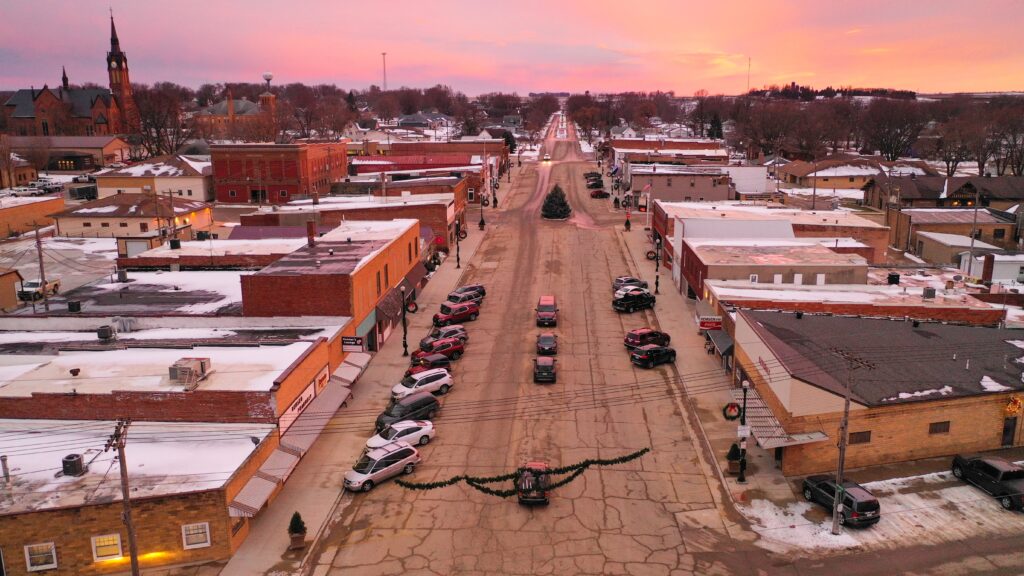
Most people know Mary Chapin Carpenter as a great songwriter. Her name suggests songs like “He Thinks He’ll Keep Her,” “I Feel Lucky,” “Passionate Kisses,” “Down at the Twist and Shout,” and “I Take My Chances.” Yet, you may have forgotten one of her most emotive songs, “I Am a Town.” Let me remind you of this song.
I Am a Town
(Words and Music by Mary Chapin Carpenter)
I’m a town in Carolina, I’m a detour on a ride
For a phone call and a soda, I’m a blur from the driver’s side
I’m the last gas for an hour if you’re going twenty-five
I am Texaco and tobacco, I am dust you leave behind
I am peaches in September, and corn from a roadside stall
I’m the language of the natives, I’m a cadence and a drawl
I’m the pines behind the graveyard,
And the cool beneath their shade,
Where the boys have left their beer cans
I am weeds between the graves.
My porches sag and lean with old black men and children
Their sleep is filled with dreams, I never can fulfill them
I am a town.
I am a church beside the highway
Where the ditches never drain
I’m a Baptist like my daddy, and Jesus knows my name
I am memory and stillness; I am lonely in old age;
I am not your destination
I am clinging to my ways
I am a town.
I’m a town in Carolina, I am billboards in the fields
I’m an old truck up on cinder blocks, missing all my wheels
I am Pabst Blue Ribbon, American, and “Southern Serves the South”
I am tucked behind the Jaycees sign, on the rural route
I am a town
I am a town
I am a town
Southbound.
Even as a poem, the words affect my heart. “For a phone and a soda, I’m a blur from the driver’s side… I am dust you leave behind.” Wow, that is great writing. I can see those places flashing by on the highway where you never stop unless you really need something, or you are really bored.
“I’m a cadence and a drawl.” One time as a visiting professor to a small college, I found myself lost in my rental car driving from Tulsa, Oklahoma to Joplin, Missouri. I pulled into a gas station for directions and was met with a “cadence and a drawl.” “Let’s see, I think yur lookin fur a place in Arkansas. I don’t rightly know where Joplin is, but I think you want to head on into Arkansas and get some help there.” I did know that Joplin was in Missouri and so I avoided the mistake and bought a $5 map to see where I needed to go. Emergency over, and I would never, again be in that small town. The “cadence and the drawl” was part of the culture; not knowing where Joplin was, was just who that person was.
“Where the boys leave their beer cans, I am weeds between the graves…dreams, I never can fulfill” You can see that scene of beer cans and unfulfilled dreams. We have all seen that town. You can also see the “old truck up on cinder blocks, missing all [its] wheels.” It is the same town where many would say, “I’m a Baptist like my daddy, and Jesus knows my name.” And perhaps the most definitive line, “I am not your destination.” It must be said, but we know it already. We would never make this town our destination unless Grandma lives there and is “lonely in old age.”
This is the definitive town of which MC2 must speak. It is the place where souls are lost, and dreams lay like raindrops on a dusty road. This is the town, southbound, and clinging to its ways.
Like Copperline by James Taylor, the emotions, scenes, and images are there to spill over our brains and our emotions. They remind us of all of the small towns we have ever seen. The disappearing places that no one will miss; the “dust you leave behind,” and the “last gas for an hour.” God bless the small town hanging on with all their strength even when they have no idea where Joplin might be.

Since the mid-Eighteenth Century, humanity has witnessed significant technological advances at an ever-increasing rate. Coal production, refinement, and consumption led to innovations in steam power to energise factories, allowing mass production techniques, and the use of large labour groups, both skilled and unskilled. In the Nineteenth Century and beyond, innovations in construction, transportation, and communication brought further change. The internal combustion engine gave freedom of travel to a great many and airline travel opened more opportunities. Jet engines soon followed, and the Twentieth Century saw the development of biotechnology, transistor and silicone chip technology, as well as computers, cellphones, military hardware, and the space race. Now, in the Twenty-first Century we find ourselves on the precipice of ever greater advancement as we look toward autonomous vehicles, ever more intelligent Artificial Intelligences (AI), reusable rockets, CRISPR biotechnology with the potential to write our own genome and guide our evolution as a species, quantum computing, better ways to charge batteries and store electricity, and the possibility of sustainable fusion energy. All of this has happened in a very short-time span when we consider that humans have only been on the earth for less than 200,000 years.
So, it is not surprising that the average person believes that we are in a logarithmic growth phase of technology. Who could doubt that warp engines and time travel are only years away? If indeed technology is still accelerating at an ever-advancing pace, we should expect to colonise not only the moon and Mars, but also the exoplanets orbiting the Alpha Centauri and Sirius stars.
But is technology on an ever-advancing, logarithmic growth path? Some suggest that this technological growth has been slow for more than a decade while organisations such as the United Nations are asking questions and seeking to determine how long such growth can continue. Certainly, there are many things that can slow the growth. Some of the larger influences include climate change due to human impact, wars, natural disasters such as pandemics, volcanic eruptions, earthquakes, and severe weather.
When we trust that we are in logarithmic technological growth, we can believe that anything is possible. We can believe in faster-than-light travel, anti-gravity devices, instant charging of large battery capacities, small self-contained energy generators attached to our belt, and even time travel. Yet, when we consider that there have been slow downs in growth (why has it taken so long to return to the moon?), we become a little more practical about what might yet be achievable in the current century. It does not seem that this growth can continue unimpeded. The very nature of economic supply and demand factors means that we may run out of either supply or demand or both. What of the finite resources of the planet we call home? How long before it is completely depleted? Can we supplement such resources with those of the moon, asteroids, or other planets before we run out of resources or labour? Could another greater world-wide pandemic bring humans close to extinction?
Perhaps it is time to consider a path of measured technological growth. What priorities might we like to see? Is human health and protection from extinction our highest goal? Will science alone save us or do we need the poets, priests, and prophets to remind us of the truly important relationships of this world? What about the importance of ethics? If it is possible to do something and advance our science, ought we consider whether we should make the advance? The world is filled with innovators who wish they could put the genie back in the bottle. When might we put stoppers in the bottles of the future? Who or what will guide us in our headlong quest? Do we already have the ethical, spiritual, and philosophical tools at the ready; or should we be looking for more?
I hope you didn’t come to this blog to receive a full sweep of answers to such questions, for you will be sadly disappointed. The answers are out there, just like the X-Files intro always said (okay, that was “the truth is out there”). Perhaps we are not yet mature enough as a species to hear the voice of truth. Let us pause and listen for a minute. Did you hear the voice of truth? If not, maybe we should listen again until we hear it loud and clear. The future of our children and grandchildren depends on us having ears to hear.